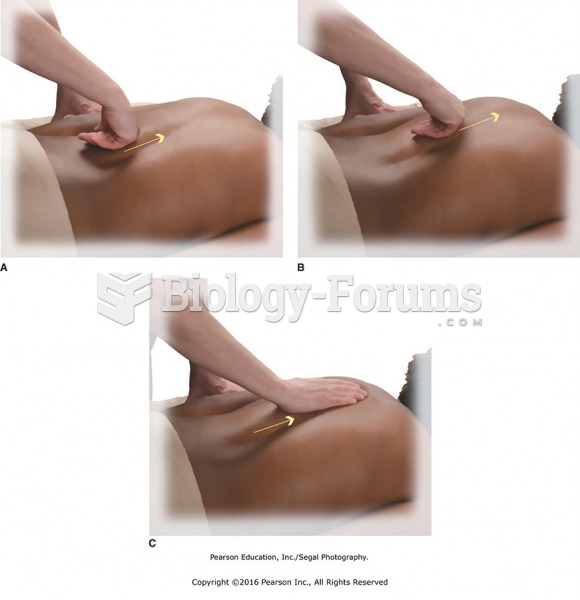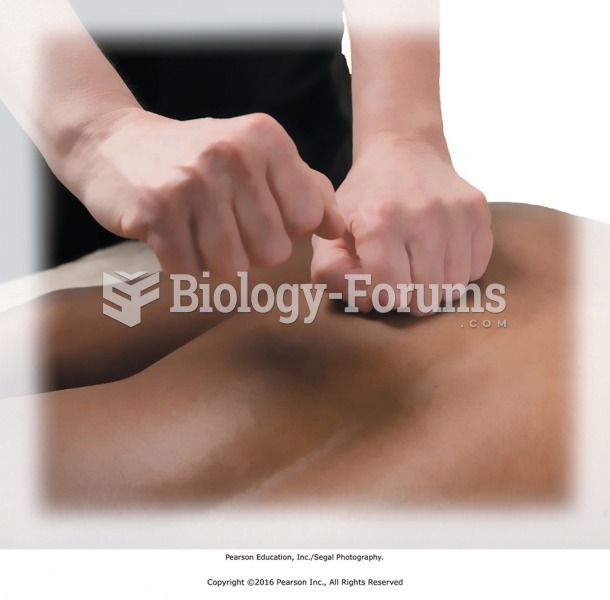This topic contains a solution. Click here to go to the answer
|
|
|
Did you know?
Amphetamine poisoning can cause intravascular coagulation, circulatory collapse, rhabdomyolysis, ischemic colitis, acute psychosis, hyperthermia, respiratory distress syndrome, and pericarditis.
Did you know?
Russia has the highest death rate from cardiovascular disease followed by the Ukraine, Romania, Hungary, and Poland.
Did you know?
Atropine, along with scopolamine and hyoscyamine, is found in the Datura stramonium plant, which gives hallucinogenic effects and is also known as locoweed.
Did you know?
Alzheimer's disease affects only about 10% of people older than 65 years of age. Most forms of decreased mental function and dementia are caused by disuse (letting the mind get lazy).
Did you know?
The horizontal fraction bar was introduced by the Arabs.
 Defibrillator. Defibrillators are devices that supply a voltage charge to the heart in the hope of r
Defibrillator. Defibrillators are devices that supply a voltage charge to the heart in the hope of r
 A Western blot for confirmatory HIV diagnosis. After an enzyme immunoassay has been performed and ...
A Western blot for confirmatory HIV diagnosis. After an enzyme immunoassay has been performed and ...





